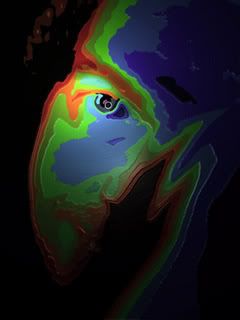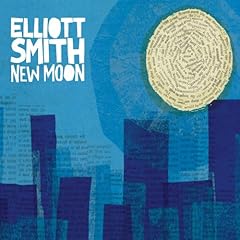CHILDREN OF MEN
a little over a week ago, i drove to warrington to see the film "Children Of Men". since then, i've discovered that its being received with a "love it or hate it" response. personally, i'm on the loved it side, but i understand how people could respond the other way. its a movie set in the future. its the year 2027, 18 years after the last baby was conceived. nearly every government has collapsed except for Britain. its become the destination of immigrants from everywhere and the powers that be have resorted to a fascist, totalitarian, xenophobic position of control. Theo, the lead (Clive Owen), is dragged away from his 9-5 and back into his radical protesting ways by his ex-girlfriend. she's come across an illegal immigrant who's miraculously gestated a fetus to third term. with her pals in the anti-government terrorist group and Theo's help , they plan on sneaking her out of the country via boat to a secret place of scientific study. there's the story in a very tiny nutshell. pistachio sized.
now, why was it hated? i think people saw the trailers and thought, "a future when women can't get pregnant anymore?" this creates questions in minds everywhere. why can't women conceive? how will this be resolved? to answer these burning quandaries, they shell out the price of admission. then, upon seeing the movie, they're left unfulfilled. these questions aren't answered. i think this makes the audience members feels like there are loose ends and no conclusion. while this may be true, its off the point.
the film plays out like how a book is written. most modern movies revolve around a cast and a story. most times, the audience see the plot unfold from an almost omnipotent perspective. books tend to tell one person's story. this movie is the story of Theo. its not about the world. its about the people in it, more specifically, those directly involved with Theo. its about the time that Theo lives in and the events that happen in this particular part of his life.
in proxy to my first point, the movie is about the result, not the cause. the people in Theo's time are wildly desperate. there is no future beyond their own lives. its a race without hope.
also, the directing and cinamatography were money. there are a few scenes in particular that dropped my jaw. there's a huge uncut shot involving a motorcycle chasing a car in reverse. the camera is contained in a car full of passengers yet moves with all the choreography of a manic ballet dancer. all the while, complicated stunts, action and acting take place. its one shot, about 5 or 6 minutes long. its really impressive. there's another similar scene towards the end that's goes for nearly 10 minutes. you'll know it to see it.
of paramount significance to me was the animal references. i think this could have, and probably did, go over a lot of heads. the prerequisite was one needed to have read George Orwell's "Animal Farm", listened to and understood Pink Floyd's "Animals", and noticed the symbolic connections in the film. the Pink Floyd disc is a concept album based off of the Orwell book. early in the film, the album art is recreated in a scene - the famous pig balloon floating over battersea power station. the music and the literature both satirize people in society. pigs are the wealthy who live with ease and power. dogs fight and squabble, attempting to take some of the pigs' power from them. the rest are sheep, followers, the apathetic working class. this recreation of the cover of "Animals" sets you up to look for the references. the pig balloon, after all, floats outside of Theo's rich and powerful cousin's art gallery. whenever terrorists, protesters or police are around, so too, are dogs. the immigrants are herded up, much like sheep. the last quarter of the movie is in a refugee camp where the foreigners are imprisoned. sure enough, herds of sheep are roaming everywhere. i thought this was genius. and yet, i hadn't seen this pointed out in a single review i read.















.jpg)
No comments:
Post a Comment